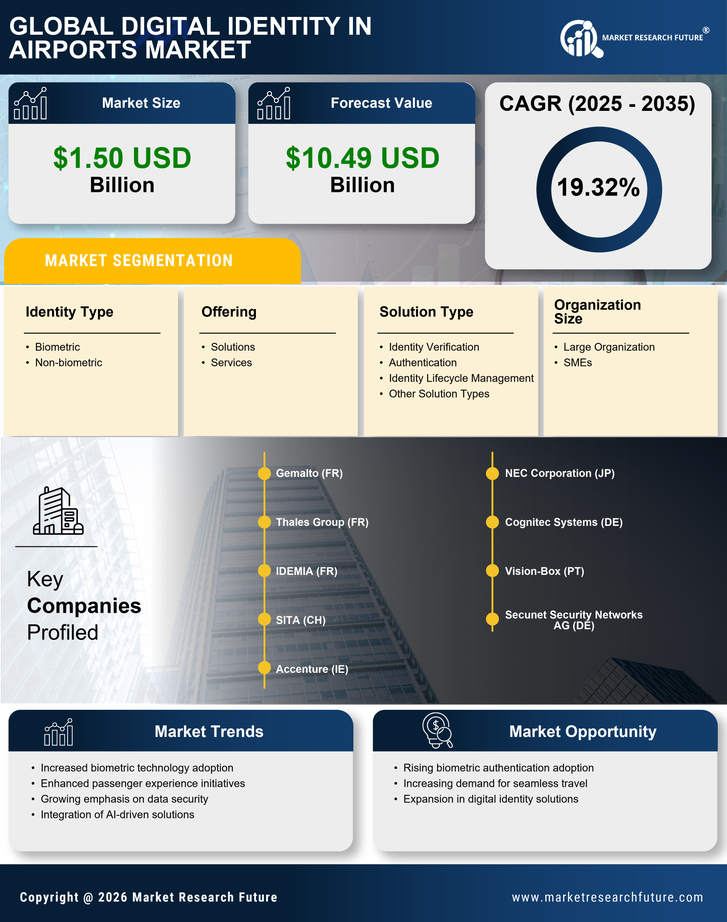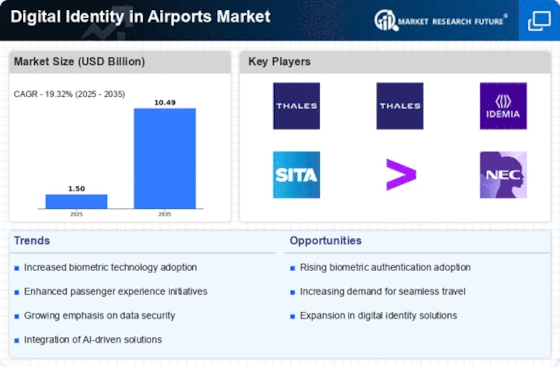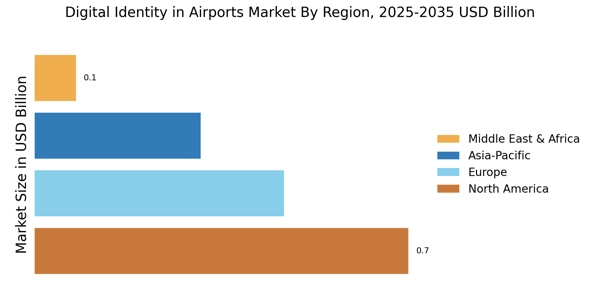Digital Identity in Airports Market Summary
As per Market Research Future analysis, the Digital Identity in Airports Market Size was estimated at 1.503 USD Billion in 2024. The Digital Identity in Airports industry is projected to grow from 1.794 USD Billion in 2025 to 10.49 USD Billion by 2035, exhibiting a compound annual growth rate (CAGR) of 19.32% during the forecast period 2025 - 2035
Key Market Trends & Highlights
The Digital Identity in Airports Market is poised for substantial growth driven by technological advancements and evolving passenger expectations.
- Biometric technology adoption is rapidly transforming the passenger experience in North America, the largest market for digital identity solutions.
- The Asia-Pacific region is experiencing the fastest growth in digital identity solutions, driven by increasing investments in smart airport infrastructure.
- The solutions segment remains the largest, while the services segment is emerging as the fastest-growing area within the market.
- Key market drivers include the rising demand for contactless solutions and regulatory support for digital identity initiatives, enhancing overall passenger satisfaction.
Market Size & Forecast
| 2024 Market Size | 1.503 (USD Billion) |
| 2035 Market Size | 10.49 (USD Billion) |
| CAGR (2025 - 2035) | 19.32% |
Major Players
Gemalto (FR), Thales Group (FR), IDEMIA (FR), SITA (CH), Accenture (IE), NEC Corporation (JP), Cognitec Systems (DE), Vision-Box (PT), Secunet Security Networks AG (DE)


















